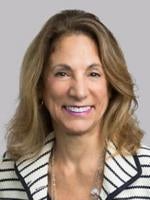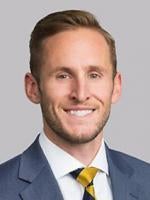On Monday September 26, the Department of Justice announced a settlement resolving a lawsuit filed by former employee Michael Bawduniak (the “Plaintiff”) against Biogen Inc. (the “Company”) under the qui tam provisions of the federal False Claims Act.[1]
The Plaintiff’s lawsuit[2] alleged that the Company paid kickbacks to healthcare providers (HCPs) to induce them to prescribe the Company’s multiple sclerosis (MS) drugs from Jan. 1, 2009, through March 18, 2014. These drugs included Avonex (interferon beta-1a), which had been on the market for at least a decade, and Tysabri (natalizumab), which had been pulled off of the market voluntarily by the Company from 2005-06 due to safety concerns. By 2009, these two drugs were rapidly losing market share to newer competitor drugs in the MS market.
The complaint alleged that, in an effort to stabilize the sales of their products, the Company pursued activities to target influential HCPs who were “high prescribers”. These approximately 1,000 HCPs were responsible for writing around 60% of the prescriptions for the MS market. The activities undertaken by the Company were alleged kickbacks to these HCPs to ensure their loyalty, to preserve market share, to discourage use of competitor products and to encourage continued prescribing of Company products. The activities identified in the complaint included payment of i) consulting and advisory fees, ii) speaker honoraria and speaker training fees, and iii) excessive travel and meals for HCPs who spoke at or attended Company speaker programs.
Specifically, the complaint alleged the following activities:
-
Consulting engagements–Company entered into hundreds of consulting agreements with “high prescriber” HCPs, under the guise of obtaining market research regarding physicians’ use of Avonex and Tsybari, even though the Company had no demonstrable need for and already possessed this information. Even though these HCPs were high prescribers, they were not necessarily qualified to perform the services for which they were hired.
The Company paid millions of dollars each year for HCPs to attend multiple similar consulting events. These events were said to be excessive in terms of venue and meals, and duplicative and redundant in terms of their stated goal. The Company may have never actually used the output from these meetings.
The Company also paid many of these HCPs more than fair market value (FMV) for their services and attendance at meetings, oftentimes disregarding FMV tiering criteria and internal annual caps on payments to HCPs. The Company also ran “return on investment” (ROI) analyses on the aggregate payments made to HCPs. -
Advisory Board meetings–Company engaged hundreds of HCPs to participate in advisory meetings across the country at luxury locations to provide marketing input on one unapproved investigational drug, asking many similarly situated and experienced HCPs the same questions. It was alleged that the Company paid the HCPs based upon criteria that measured their ability to influence the prescription of MS treatments.
-
Speaker Training–Company repeatedly trained hundreds of HCP speakers on Avonex and Tysbari, paying them for these trainings even though most speakers only presented once or twice a year. In some instances, HCP speakers presented to a single attendee at a speaker program, and in those cases, the attendee was often someone who worked with the presenting HCP in his or her own office. These speakers were selected based on their prescribing ability, and not on their speaking ability.
-
Patient Education Program–Company created a Patient Education Program (PEP) that paid HCPs to speak to MS patients at local hotels or community centers. The PEP appeared as intended to create an opportunity for the Company to pay inexperienced HCPs to conduct a short program that was less rigorous than a speaker program, allowing them to establish a higher profile in the community and possibly attract new MS patients. The PEP was said to have had no legitimate business purpose other than to assist inexperienced HCPs with marketing within their communities.
The Complaint also alleged that the Marketing Department routinely circumvented the Compliance Department. The Marketing Department ignored requests by the Compliance Department for an annual consulting plan and disregarded Compliance concerns that there were too many duplicate meetings, too many consultants providing the same consulting services and too many payments being made to HCPs. Senior Marketing executives ignored and often overruled these concerns.
The Company denied all the allegations set forth in the complaint with no admission of wrongdoing, but did agree to settle the lawsuit prior to trial. Under the terms of the settlement, the Company agreed to pay $843,805,187 to the United States and $56,194,813 to fifteen states. The Plaintiff will receive approximately 29.6% of the federal proceeds from the settlement or $250 million. The lawsuit was dismissed with prejudice.
The settlement is significant for a number of reasons. The size of the payout to Plaintiff is reported to be the highest whistleblower award under any government program. The size of the award represents, in part, the amount of effort that Plaintiff put into the investigation over many years, in a matter in which the DOJ subsequently chose not to intervene. Furthermore, the award is an indication that individual whistleblowers may be able to pursue litigation on their own and win substantial rewards, although the efforts to do so require significant resources and commitment on their part.
Pharmaceutical and device companies should note that many of the activities alleged to have been taken by the Company have been addressed, in part, by previous DOJ settlements and the OIG Special Fraud Alert: Speaker Programs, November 2020 (SFA).[3] The SFA lays out the significant risks associated with speaker programs and how those programs can run afoul of the Federal Anti-Kickback Statute (AKS)[4]. If they haven’t already done so, companies should revisit the SFA and ensure that their speaker program activities conform with the SFA. Companies should also consult the personal services safe harbor regulations of the AKS[5] to ensure that their consulting arrangements with HCPs meet the specific requirements necessary to ensure that they are not implicating the AKS.
Companies should also carefully consider how they plan, organize, execute and evaluate HCP consulting operations using commercial analytics, as these activities—often as precursors to commercial activity—lay the groundwork for potentially problematic marketing activities in the future. Targeting “centers of excellence” or “academic centers” may, on its face, appear as legitimate criteria for selecting HCPs for consulting activities. However, companies should ask themselves whether that methodology is just subterfuge for targeting high prescribers, who tend to gravitate toward or practice within those centers. Similarly, commercial teams should take a careful look at internal segmentation analyses, as well as how those analyses are documented internally, to ensure that legitimate business rationales are not undermined by the way in which HCP segments are referenced. The complaint talks about targeting and segmenting on “product loyalty,” so teams should ensure that decisions on consulting are not tied in any way to decisions about whether a particular HCP is a high prescriber or not. And of course, careful consideration should always be paid on conducting any kind of ROI analysis on HCP consulting expenditure.
FOOTNOTES
[2] United States ex rel. Bawduniak v. Biogen Idec, Inc., No. 12-cv-10601-IT (D. Mass.)
[3] https://oig.hhs.gov/documents/special-fraud-alerts/865/SpecialFraudAlertSpeakerPrograms.pdf
[4] 42 U.S.C. § 1320a-7b(b)
[5] 42 C.F.R. § 1001.952




 />i
/>i
